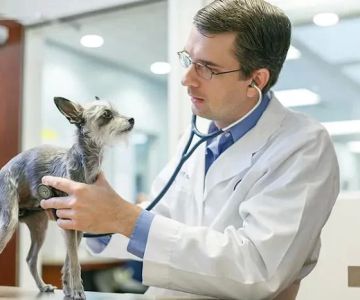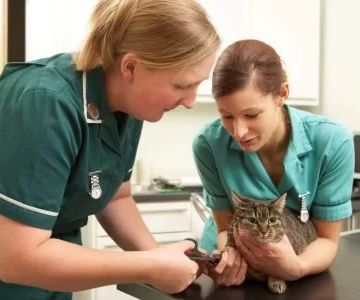- 1-The-Role-of-Veterinary-Doctors
- 2-Differences-Between-Veterinary-and-Human-Medicine
- 3-Why-Veterinary-Doctors-Are-Not-Qualified-to-Treat-Humans
- 4-Instances-Where-Veterinary-Knowledge-Overlaps-Human-Health
- 5-Case-Study-A-Vet-Assisted-in-Human-Health-Scenario
- 6-Seeking-the-Right-Medical-Professionals-for-Human-Care
1. The Role of Veterinary Doctors
Veterinary doctors are highly trained professionals specializing in animal health, disease diagnosis, treatment, and prevention. Their education focuses on a wide range of species, from household pets to livestock and wildlife.
They develop expertise in anatomy, pharmacology, and pathology of animals, but their training is distinct from that of medical doctors who treat humans. The role of veterinary doctors is critical in ensuring animal welfare and public health through zoonotic disease control.
2. Differences Between Veterinary and Human Medicine
While veterinary and human medicine share scientific foundations, the biological differences between species necessitate specialized knowledge. Treatments, medications, dosages, and disease presentations vary widely.
Medical doctors undergo training focused solely on human anatomy and physiology, acquiring certifications and licenses specifically to practice human medicine. In contrast, veterinarians are licensed to treat animals only.

3530 Fruitville Rd, Sarasota, FL 34237, USA
See Details2.1 Legal and Ethical Boundaries
Legal regulations strictly prohibit veterinary doctors from treating humans. Practicing outside their scope can have serious legal consequences and risks patient safety.
3. Why Veterinary Doctors Are Not Qualified to Treat Humans
The question “can veterinary doctors treat human” is often raised out of curiosity, but the answer is clear: veterinarians are not qualified or authorized to treat human patients. Their training does not cover human-specific diseases, treatments, or emergency care protocols.
Even though vets are knowledgeable about medicine and surgery, the physiological complexities of humans require a different level of specialization and training.
4. Instances Where Veterinary Knowledge Overlaps Human Health
There are areas of overlap, such as zoonotic diseases—illnesses transmissible between animals and humans. Veterinarians contribute significantly to controlling outbreaks like rabies or avian flu.
Additionally, veterinary research sometimes informs human medicine advances, particularly in drug development and surgical techniques.
5. Case Study: A Vet Assisted in Human Health Scenario
In a rare emergency during a natural disaster, a veterinarian assisted medical professionals by providing expertise on wound care and emergency triage, highlighting their broad medical knowledge.
However, this support was always in collaboration with licensed human medical personnel, underscoring the importance of proper qualifications.
6. Seeking the Right Medical Professionals for Human Care
For anyone wondering “can veterinary doctors treat human,” it’s essential to seek licensed human medical professionals for any health concerns. Proper diagnosis and treatment require specialists trained specifically in human health.
For animal health concerns, veterinary doctors remain the trusted experts. If you want to learn more about animal health and veterinary services, platforms like Hidden Brook Veterinary can provide valuable guidance and support tailored to your pet’s needs.
Understanding these distinctions ensures you receive the best care—whether for yourself or your beloved animals.










